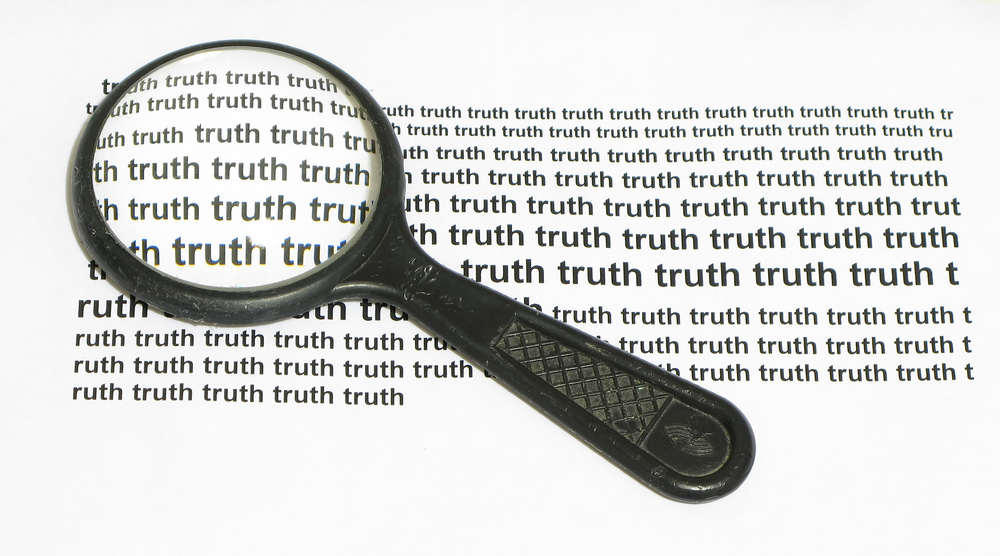E-Pluribus | June 13, 2023
The polarization mirage; the scientific community continues to eat its own; and the truth under fire down under.
A round-up of the latest and best writing and musings on the rise of illiberalism in the public discourse:
Michael Baharaeen: Much Of America’s Political Divide Is An Illusion
That polarization has gotten out of control in this country is practically conventional wisdom now, but Michael Baharaeen says that’s largely inaccurate. At Persuasion, Baharaeen says the deafening volume of those proclaiming our divisions masks what many Americans have in common—that is, a desire for common ground.
Amid this never-ending doom spiral of division, many of us have become convinced that we have nothing in common with those in the opposing tribe, especially on the toughest moral issues of the day. And when we just know the other side is so extreme and hateful—that the most pugnacious and provocative voices among them must be representative of them all—how is it possible to ever compromise with them or even listen to them with an open mind?
Here’s where I can report some hopeful news: Americans are actually more moderate, more heterodox, and less easily sorted along partisan lines than the media might have us believe.
This is apparent in a few different ways. Gallup’s annual survey of partisan self-identification has found that independents have constituted a growing plurality of all voters since 2009, a sign that fewer people are making their attachment to one of the two major parties a core part of their identity. Additionally, data from the 2022 midterms showed that just 27 percent of voters identified as either “very” liberal or conservative, while the vast majority (73 percent) either thought of themselves as moderate or only “somewhat” liberal or conservative. The Pew Research Center also periodically releases studies of the two major parties’ coalitions, which demonstrate just how much diversity of thought and life experience exists among voters within each party.
Beyond these topline self-identification statistics, many Americans are often not very ideologically rigid on thorny political or social issues, either. Few fully embrace the most strident or extreme positions of their political tribe. It’s in this complexity and gray area that we might begin to find our way out of the wilderness on some of the most contentious issues driving the culture wars and plaguing American politics today.
Read it all here.
Colin Wright: Anatomy of a Scientific Scandal
Having been the target of whisper campaigns within the scientific community himself, Colin Wright knows what it’s like to have one’s credibility undermined for political purposes. At City Journal, Wright tells of the plight of two researchers whose paper on gender dysphoria (that just happens to challenge established orthodoxy on transgender issues) is a target for retraction on trumped up technical charges.
An alarming recent event highlights the vulnerability of the scientific endeavor to politics. ASB [Archives of Sexual Behavior] is a primary target for activist researchers who will not tolerate dissent from their views, and a months-long campaign by activists to pressure Springer Nature into retracting an ASB paper that they didn’t like has culminated in success. While the activists’ desire to censor inconvenient research should come as no surprise, Springer Nature’s capitulation to their demands represents a profound betrayal of scientific integrity and the publisher’s commitment to truth.
The paper in question, “Rapid Onset Gender Dysphoria: Parent Reports on 1655 Possible Cases,” was authored by researchers Suzanna Diaz (a pseudonym) and Michael Bailey and published in ASB on March 29. Rapid Onset Gender Dysphoria (ROGD), a newly proposed pathway to gender dysphoria, was first described by the researcher Lisa Littman in 2018; the theory may help explain the documented surge in cases of gender dysphoria among adolescents and young adults who had previously exhibited no gender-related issues. Littman proposed and provided supporting evidence that social factors have at least partly caused the surge, especially among girls.
[ . . . ]
The activist playbook here was simple: get the Diaz and Bailey paper retracted over a technicality, then spin the retraction as an invalidation of the study’s main findings. Such a tactic was successfully used on Littman’s 2018 ROGD paper; the journal’s decision to re-review the paper and issue a “correction” has been repeatedly and disingenuously leveraged by proponents of “gender-affirming” care to declare the study “debunked.”
A retraction of Diaz and Bailey’s study could have an even more disastrous effect. It would not only cause the retraction of an important contribution to the ongoing scientific debate over transgender identification among youth but also signal the ideological capture of a scientific publishing giant that controls hundreds of journals that shape our knowledge base.
Read the whole thing.
Sean Masters and Raimund Hume: Gender’s Truth-Distortion Field
While there are differences in public attitudes about gender issues in other countries, Sean Masters and Raimund Hume write at Quillette that a number of institutions in Australia are practicing the same distortion techniques as some of America’s political, cultural and scientific institutions. Too often, the pressures to conform, financial or otherwise, are enough to suppress genuine and intellectually rigorous dissent.
As participants in the debate over best practices in Australia, we have come to view this state of affairs, metaphorically, as a kind of truth-distortion field. Its effect is to systematically deflect political decisions, therapeutic practice, and grade-school pedagogy in the direction of trans-rights maximalism.
The generating stations for this truth-distortion field include well-known bodies such as the AIDS Council of New South Wales (ACON), whose primary funder is the government of New South Wales, Australia’s biggest state. (Its capital is Sydney, by far the country’s biggest city.) As its name suggests, ACON was established to advocate for those at risk from the 1980s AIDS epidemic; and that important work achieved important results. But in recent years, like many venerable charities that spent decades advocating for the gay community (including Stonewall), ACON has steadily shifted its attention and resources to trans issues.
Under the auspices of its “Pride in Diversity” program, ACON runs the AWEI, or Australian Workplace Equality Index—an employer-accreditation system explicitly modelled on Stonewall’s example, which now serves as Australia’s only national benchmark for LGBTQ workplace inclusion. It was created with the assistance of Diversity Council Australia (DCA), which self-describes as an “independent not-for-profit peak body leading diversity and inclusion in the workplace.” DCA’s membership includes many of Australia’s largest companies. Overall, the DCA claims, its member organisations “are estimated to employ nearly two million Australians, representing more than 20 percent of the workforce.”
As with the Stonewall accreditation system in the UK, at least initially, the AWEI seal of approval has been sought after by employers. But—again, following the British precedent—questions have been asked about the criteria at play.
In 2021, a request was made under Britain’s Freedom of Information Act, seeking copies of any submissions made to Stonewall’s Workplace Equalities Index by Oxford University, and any feedback received on those submissions. In a 2022 decision regarding the scope of Oxford’s required disclosures, the country’s Information Commissioner’s Office (ICO) decided that the university’s involvement in Stonewall’s Workplace Equalities Index had become a matter of public interest. “By associating themselves with Stonewall’s brand, employers are bound to chase its approval,” the ICO concluded. This meant that “Stonewall is able to exercise, through its Index and its Diversity Champions Programme, a significant degree of influence over the policies that participating members operate. Such influence can be used for good and for bad.”
Read it all.
Around Twitter
Here’s a thread from British author Helen Joyce on Ireland’s proposed “hate speech” legislation:
The latest casualty of Russia’s war on Ukraine is… a book… set in Russia:
And finally, “woman” is out, “non-man” is in:









